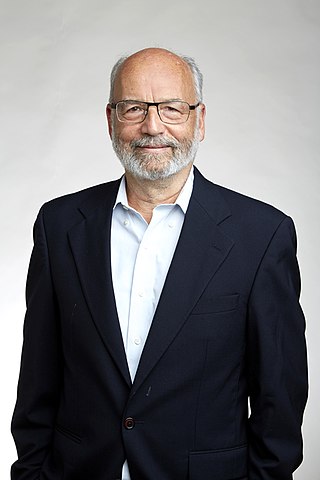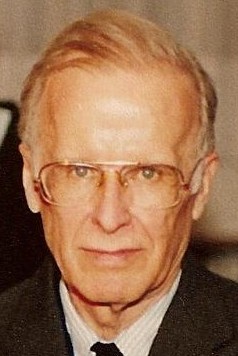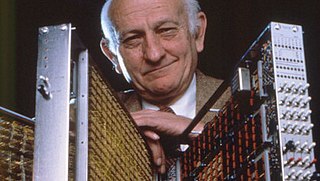| Year | Recipients | Citation |
|---|
| 1966 | Fernando J. Corbató | For his pioneering work in organizing and spearheading the early development of the first practical large-scale time-sharing computer system, and for his tireless efforts in providing direction for the entire time-sharing concept. |
|---|
| 1967 | John W. Backus | For his early and continuing contribution to the field of higher-level languages, in particular for his conception and leadership resulting in the completion of the first FORTRAN projects; and for his work in syntactical forms incorporated in ALGOL. |
|---|
| 1968 | Seymour R. Cray | For his continuing technical contributions to computer development through design automation and system definition, and for outstanding managerial leadership in producing a series of large scale computers. |
|---|
| 1969 | Herman Lukoff | For his insight and leadership in solving primary problems of early computers and his continuing contributions that have paved the way for tomorrows computing systems. |
|---|
| 1970 | Frederick P. Brooks, Jr. | For his significant contributions to computer architecture and programming and his leadership in cooperative efforts to further education in the computer field. |
|---|
| 1971 | Tom Kilburn | For his achievement in designing and building some of the first-- as well as some of the most powerful -- computers in the world. |
|---|
| 1972 | Jean A. Hoerni | For significantly influencing the architecture and design of data processing systems by inventing the planar process of semi-conductor circuit fabrication -- the development that made possible the economical mass production of reliable integrated circuits and semi-conductor memories. |
|---|
| 1973 | David A. Huffman | For his contributions to the solution of sequential circuit problems and coding theory, and for his leadership as a teacher. |
|---|
| 1974 | Shmuel Winograd | For his pioneering work in computational complexity and for stimulating further research on the scientific basis for evaluating the efficiency of computational algorithms. |
|---|
| 1975 | C. Gordon Bell | For outstanding contributions in the areas of technical design, education, and publications influential in developing the computer field. |
|---|
| 1976 | Gene M. Amdahl | For his contributions to the architecture and design of computer systems, and for his achievements in promoting advancements in the computer state of the art through business enterprise. |
|---|
| 1977 | Robert S. Barton | For his innovative architectural computer concepts, such as stack processing, data stored with self-describing tags, and the direct execution of higher level languages, as embodied in the B-5000 and successor machines. |
|---|
| 1978 | Gordon E. Moore | For outstanding contributions to research and development of semi-conductor components and his insights and leadership in the micro-processor and semi conductor memory fields. |
|---|
| 1979 | Grace Murray Hopper | For her combination of technical skill, leadership, teaching capability, and single-minded drive for the invention, adoption, and standardization of high-level programming languages. |
|---|
| 1980 | Donald E. Knuth | For his many contributions to software engineering and education and for the excellence of his scholarship and creativity in organizing vast subject areas of computer science so that they are accessible to all segments of the computing community. |
|---|
| 1981 | Maurice V. Wilkes | For a lifetime of innovative technical contributions to the computer field in the areas of software engineering, structured programming, distributed computing, data base structures, time-sharing, storage hierarchies, paging, and microprogramming. |
|---|
| 1982 | Rex Rice | For his outstanding technical and managerial contributions to computer development through the invention of the universally utilized dual-in-line semi-conductor component package, and the design and production of the first large LSI semi-conductor memory systems. |
|---|
| 1983 | Daniel Slotnick | For his pioneering contributions to centrally controlled parallel computers and for his achievement in creating the parallel computer ILLIAC IV. |
|---|
| 1984 | Thomas M. McWilliams and
Lawrence C. Widdoes, Jr. | For creating the structured computer-aided logic (SCALD) design methodology, which is the basis for many of the successful computer-aided engineering systems used in the industry. |
|---|
| 1985 | William D. Strecker | For being principal designer of the VAX architecture and for contributions to local area networks, high-performance interconnects, caches, and memory hierarchies. |
|---|
| 1987 | Sidney Fernbach | For continuously challenging, inspiring, and supporting American designers and industry to produce many successive generations of super computers. |
|---|
| 1988 | William Poduska | For his continued creative contributions to hardware and software developments and for management expertise in bringing them to products. |
|---|
| 1989 | Edward B. Eichelberger and
Thomas W. Williams | For developing the level-sensitive scan technique of testing solid-state logic circuits and for leading, defining, and promoting design for testability concepts." |
|---|
| 1990 | Lawrence G. Roberts | For designing packet switching technology and bringing it into practical use by means of the ARPA network. |
|---|
| 1994 | Federico Faggin | For the development of the Silicon Gate Process, and the first commercial microprocessor. |
|---|
| 1995 | Ken Kennedy | For important contributions to theory and practice of compiler optimization and leadership in the development of software for parallel computation. |
|---|
| 1996 | Timothy Berners-Lee | For innovative invention of the World Wide Web, which extends hypertext to distributed information, which has brought about a revolutionary transformation in the use of computers and networks. |
|---|
| 1997 | Marc Andreessen and Eric Bina | For Developing a Multi-Platform Browsing Tool for the World Wide Web. |
|---|
| 1998 | Tilak Agerwala | For outstanding contributions to the development of high performance computers. |
|---|
| 1999 | Yale Patt | For your impact on the high performance microprocessor industry via a combination of important contributions to both engineering and education. |
|---|
| 2000 | Raymond Ozzie | For his vision, determination, and programming skill in the development of Lotus Notes, a program that enables groups of people to work collaboratively over computer networks. |
|---|
| 2001 | Pradeep K. Khosla | For significant contributions to the design of re-configurable real-time software systems, and for significant contributions to undergraduate and graduate education in electrical and computer engineering and robotics. |
|---|
| 2002 | Jaishankar Menon | For leading contributions on the architecture and design of data storage systems and RAID technology. |
|---|
| 2003 | Sartaj K. Sahni | For contributions to the theory of NP-hard and NP-complete problems. |
|---|
| 2004 | Simon Lam | For outstanding fundamental contributions in network protocols and security services. |
|---|
| 2005 | Krishan K. Sabnani | For seminal contributions to networking protocols and to wireless data networks. |
|---|
| 2006 | Benjamin W. Wah | For fundamental contributions to the theory and applications of nonlinear and resource-constrained optimization. |
|---|
| 2007 | Anil K. Jain | For pioneering contributions to theory, technique, and practice of pattern recognition, computer vision, and biometric recognition systems. |
|---|
| 2008 | Krishna Palem | For pioneering contributions to the algorithmic, compilation, and architectural foundations of embedded computing. |
|---|
| 2009 | Jiawei Han | For significant contributions to knowledge discovery and data mining. |
|---|
| 2011 | Ian F. Akyildiz | For pioneering contributions to wireless sensor network architectures and communication protocols. |
|---|
| 2012 | Ronald Fagin | For fundamental and lasting contributions to the theory of databases. |
|---|
| 2013 | Maurice Herlihy | For fundamental contributions to the theory and practice of multi-processor computation. |
|---|
| 2014 | Hanan Samet | For fundamental contributions to the development of multidimensional spatial data structures and indexing, translation validation, and proof-carrying code. |
|---|
| 2015 | Viktor K. Prasanna | For fundamental algorithmic and application specific architectural contributions to reconfigurable computing. |
|---|
| 2016 | Dexter C. Kozen | For groundbreaking contributions to topics ranging from computational complexity, to the analysis of algebraic computations, to logics of programs and verification. |
|---|
| 2017 | Srinivas Devadas | For fundamental contributions that have shaped the field of secure hardware, impacting circuits, microprocessors, and systems. |
|---|
| 2018 | Moti Yung | For innovative contributions to computer and network security, predicting, both, attack scenarios and design needs in this important evolving area. |
|---|
| 2019 | Rajesh K. Gupta | For seminal contributions in design and implementation of Microelectronic Systems-on-Chip and Cyberphysical Systems. |
|---|
| 2020 | Sushil Jajodia | For contributions to the scientific and engineering principles that enable effective adaptive cyber defense. |
|---|
| 2021 | Charu C. Aggarwal | For contributions to knowledge discovery and data mining. |
|---|
| 2022 | Rafail Ostrovsky | For visionary contributions to computer security theory and practice, including foreseeing new cloud vulnerabilities and then pioneering corresponding novel solutions. |
|---|












